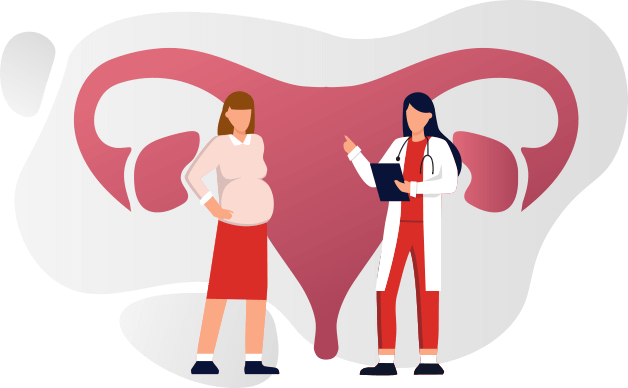Dubai
English
Request a call

Conception is usually associated with the cessation of the cycle, however in practice things are not always so straightforward. Some women continue to notice bloody traces and ask themselves a troubling question: can menstruation occur during pregnancy in the first month, and how normal is it? Let’s figure out when such situations are acceptable and when it is necessary to see a doctor as soon as possible.
What exactly happens
From a medical point of view, classical menstruation is impossible if conception has occurred. This process implies the rejection of the inner layer of the uterus, which means it is incompatible with the development of the fetus. Nevertheless, in the early stages it is possible for bloody spotting to appear, which women mistake for their usual “critical days.” Sometimes the body still “remembers” the previous rhythm and, by inertia, triggers processes resembling the cycle. This looks like regular smearing spots, but biologically it is already a completely different condition.
Reasons Why Bleeding May Occur
There are quite a few possible reasons why traces of blood may appear during this period. The most common explanations are:- Implantation bleeding: when a fertilized egg attaches to the wall of the uterus, a small vessel may be damaged – hence the light discharge.
- Unstable hormonal balance: if the body lacks progesterone, there is a risk of short-term spotting.
- Physical or emotional strain: severe stress or excessive exertion may cause a temporary change in condition.
- Erosion or polyps: damage to the cervix during intimacy or examination can provoke minor bleeding.
- Body adaptation: the body is readjusting, and this process may be accompanied by temporary disruptions.

Reasons Why Bleeding May Occur
There are quite a few possible reasons why traces of blood may appear during this period. The most common explanations are:- Implantation bleeding: when the fertilized egg attaches to the wall of the uterus, a small vessel may be damaged – hence the light discharge.
- Unstable hormonal background: if the body lacks progesterone, there is a risk of short-term spotting.
- Physical or emotional overstrain: severe stress or excessive exertion may cause a temporary change in condition.
- Erosion or polyps: damage to the cervix during intimacy or examination can provoke slight bleeding.
- Body adaptation: the body is restructuring, and this process may be accompanied by temporary disruptions.

Reasons Why Bleeding May Occur
There are many possible reasons why traces of blood may appear during this period. The most common explanations are:- Implantation bleeding: when a fertilized egg attaches to the wall of the uterus, a small vessel may be damaged – hence the light spotting.
- Unstable hormonal balance: if the body lacks progesterone, there is a risk of short-term spotting.
- Physical or emotional strain: severe stress or excessive exertion can cause a temporary change in condition.
- Erosion or polyps: damage to the cervix during intimacy or an examination may provoke minor bleeding.
- Body adaptation: the body is restructuring, and this process may be accompanied by temporary disruptions.

What to do in case of bleeding
If you notice suspicious signs, you need to act calmly but quickly:- Make sure conception has occurred: take a rapid test or do an hCG analysis.
- Avoid physical exertion, eliminate stress.
- Record all changes: nature, amount, duration.
- Do not take any medications without consulting a doctor.
- If the discharge increases – call an ambulance, especially if you experience sharp pain, dizziness, or weakness. Sometimes every hour counts, and a delay can cost health or even life.

Fill out the form to book your consultation.
Your personal manager will contact you within 10 minutes and arrange a convenient time for your visit.














